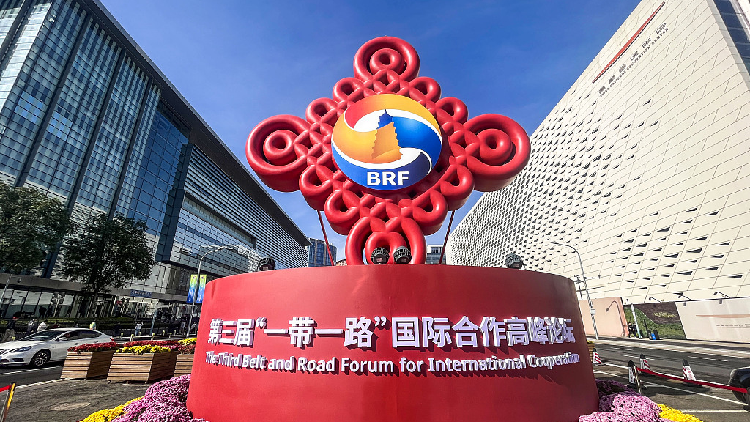BEIJING: About 200 people from 40 countries and regions and international organizations engaged in in-depth discussions during a recent thematic forum on think tank exchanges held in Beijing.
The event was part of the third Belt and Road Forum for International Cooperation that attracted representatives from over 150 countries and 40-plus international organizations.
This grand gathering, where views were shared and exchanged at an array of activities including the one on think tank exchanges, showed China’s rising stature as a key global market for ideas.
Drawing inspiration from the history of the ancient Silk Road, the Belt and Road Initiative (BRI) is among the worldwide buzzwords originating from China. Since it was first proposed in 2013, the BRI has been included in documents of the United Nations, the G20, APEC, and the Shanghai Cooperation Organization.
Over the past ten years, Belt and Road cooperation has expanded from the Eurasian continent to Africa and Latin America. More than 150 countries and over 30 international organizations have joined the BRI and signed more than 230 cooperation documents.
While Belt and Road cooperation is promoted, the BRI has also become a popular focus of international academic research. A series of academic achievements have been released in this regard over the past decade.
A research report unveiled at the thematic forum on think tank exchanges argues that the BRI has given rise to a genre of more inclusive and effective development science — Belt and Road Development Studies.
As an open mechanism of academic exchanges and cooperation, the Belt and Road Studies Network (BRSN) was inaugurated in 2019. With 16 initiators, it was established to serve international think tanks, global and regional organizations, and researchers from various countries, and to promote studies and academic exchanges on the Belt and Road Initiative.
During a recent plenary meeting of the BRSN in Beijing, attendees said that think tanks should continue pooling wisdom to facilitate win-win Belt and Road cooperation.
Over the years, the common quest for infrastructure development across the Global South did not make the BRI partnership a monopolistic privilege of the developing world, said Ong Tee Keat, chairman of the Center for New Inclusive Asia, Malaysia, at the thematic forum on think tank exchanges. –Agencies






